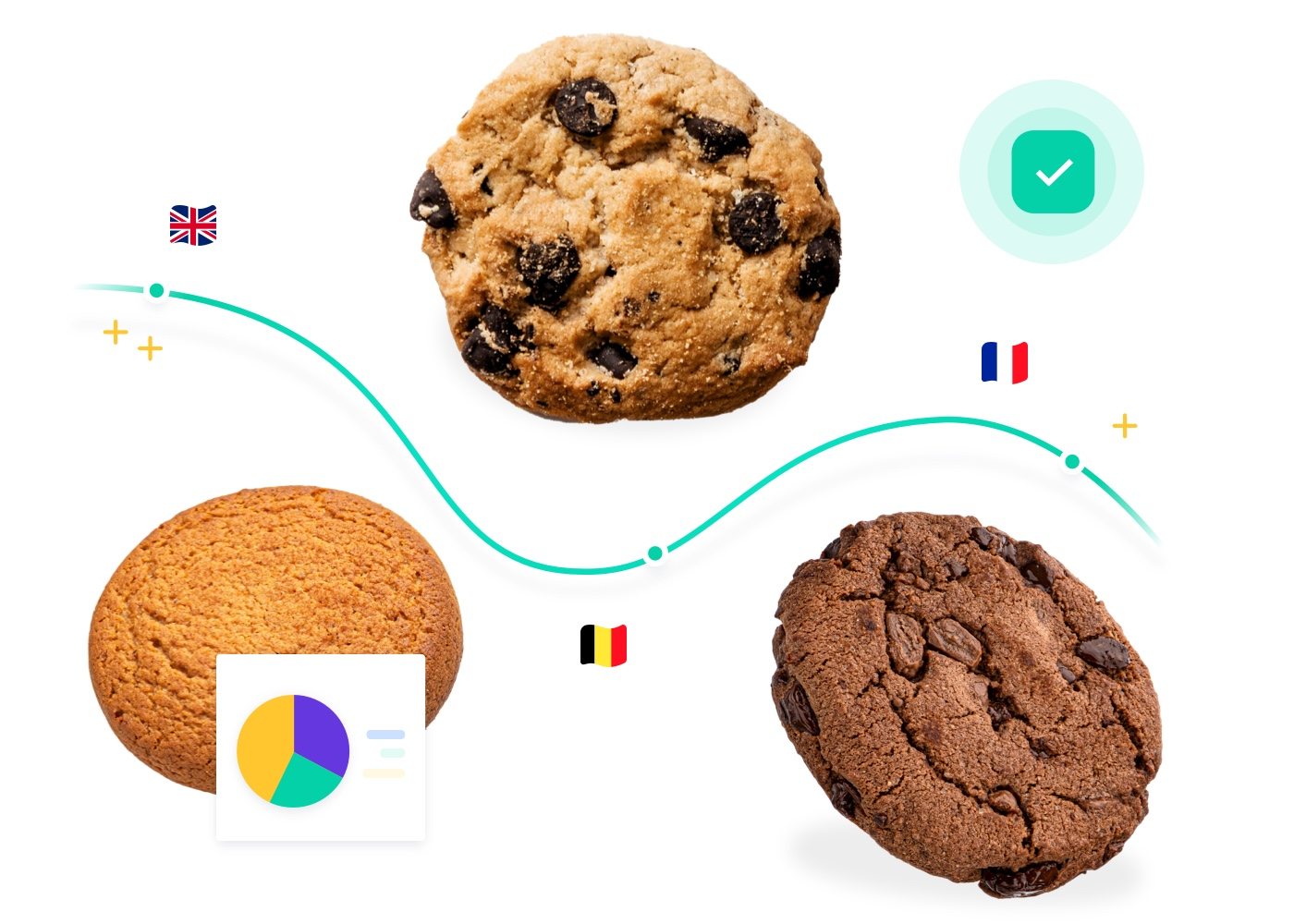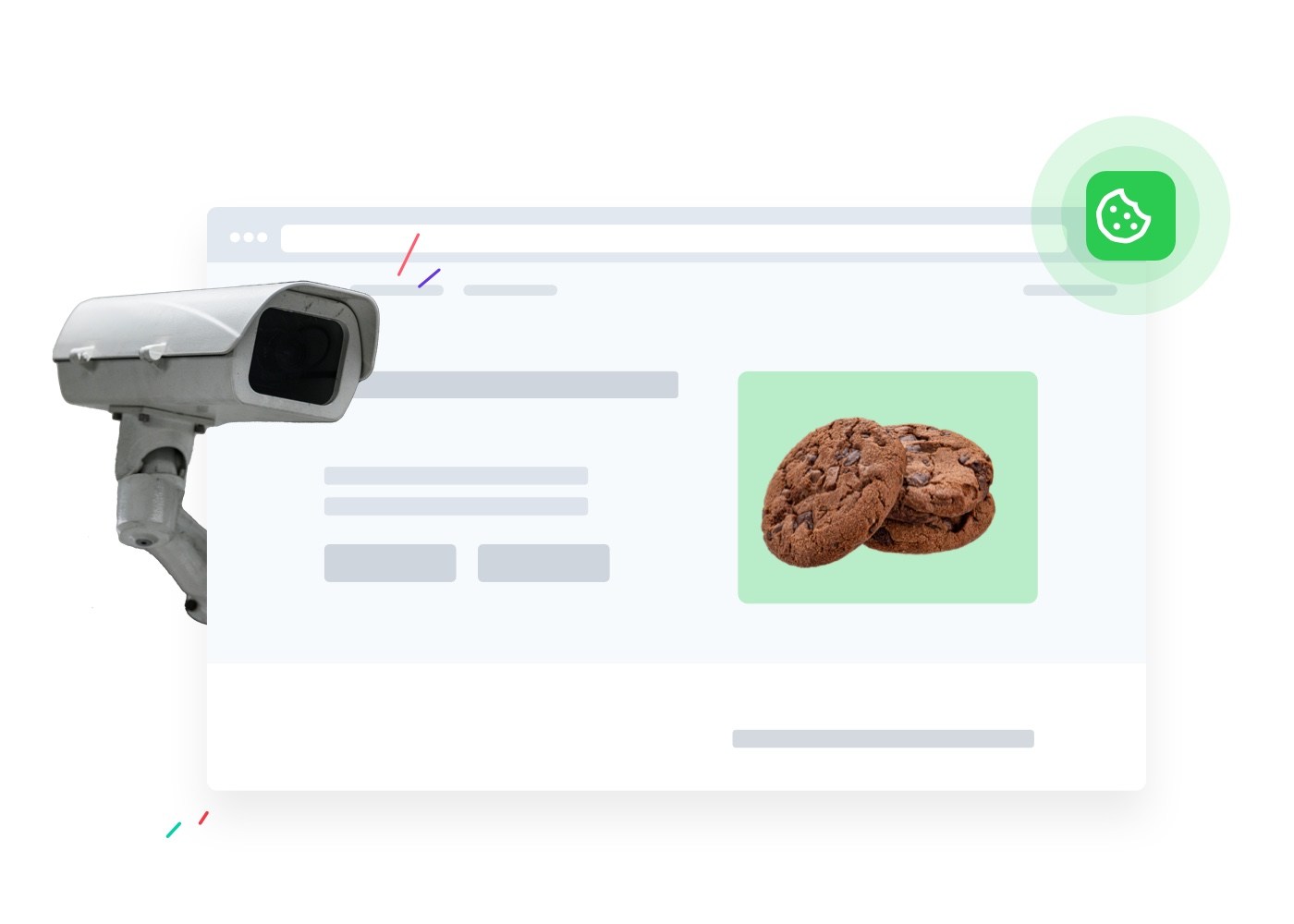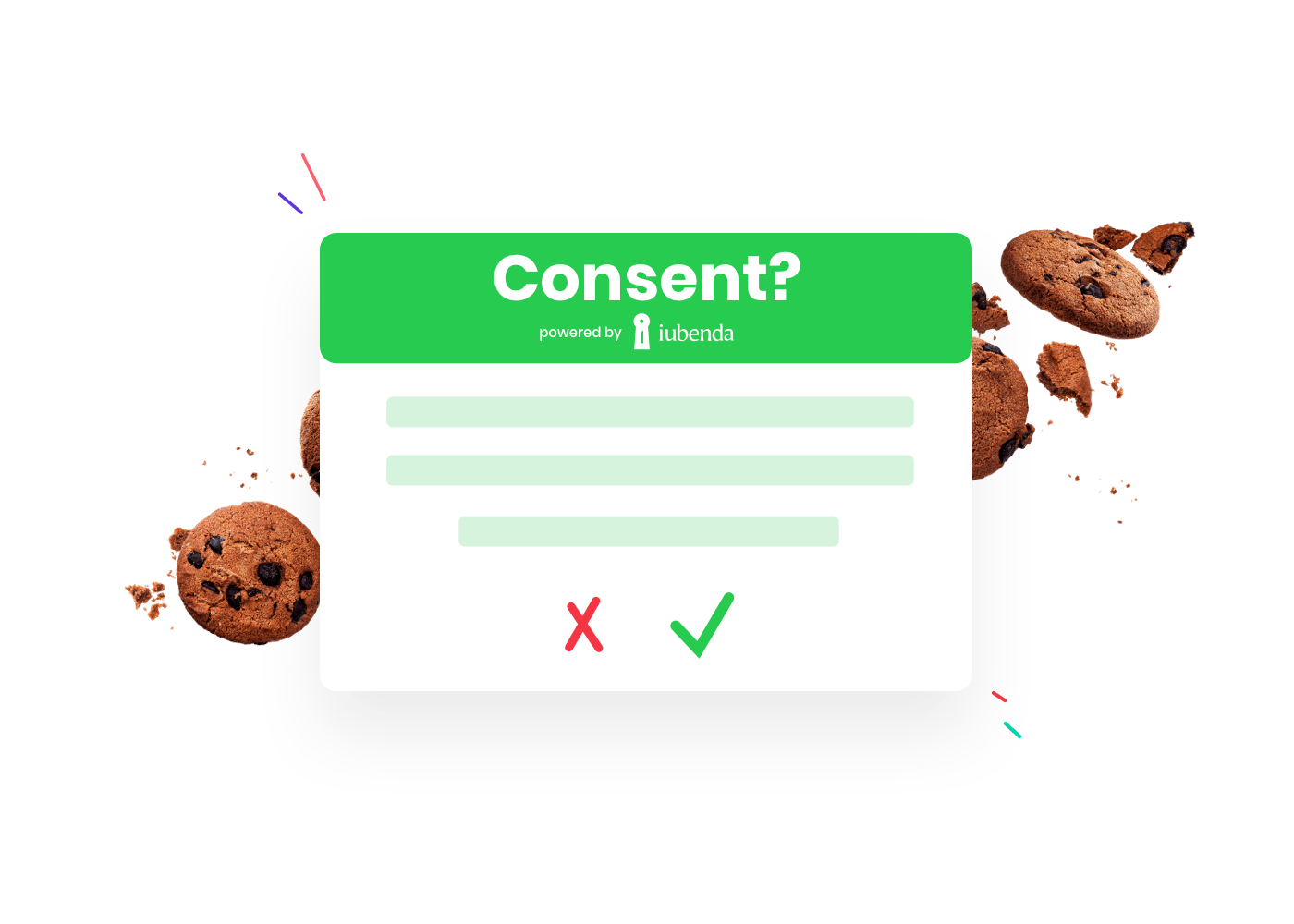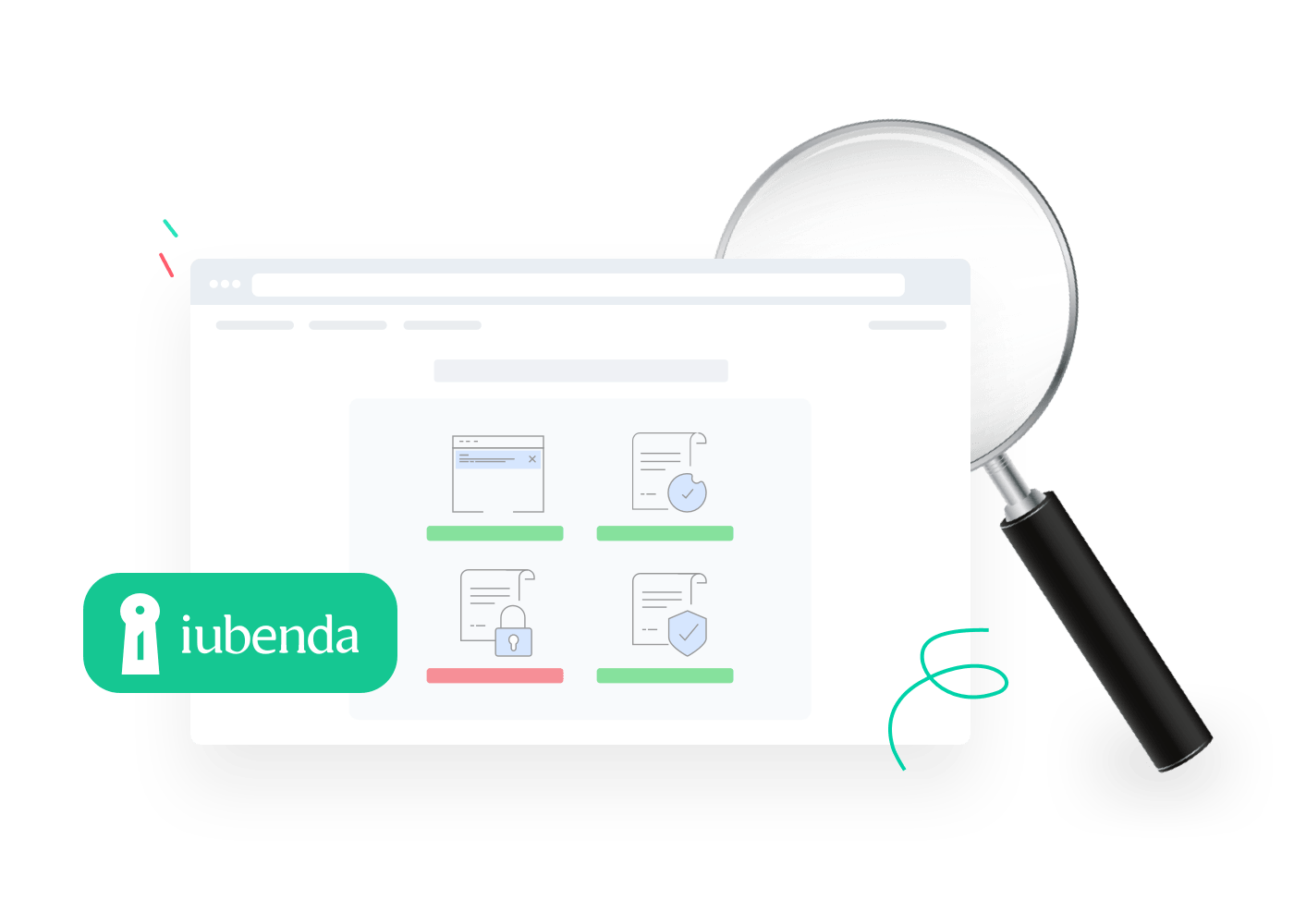Catch up on different types of cookies

You could compare it to that can box full of delicious cookies your grandmother puts on the table on Sunday afternoon. So many to choose from! Well, the same thing is true when it comes to types of cookies. There are lots of them. That's because there are different types of cookies for each specific tracking or analysis of browsing traffic.
- About cookies in general
- Why are there different types of cookies?
- What types of cookies are there?
- Strictly necessary cookies
- Functional cookies
- Analytical cookies
- Marketing cookies
- Third-party cookies
- Session cookies
- Permanent cookies
- Social media cookies
- Affiliate cookies
- Using different types of cookies on your website
- Collect permissions effortlessly with our compliance manager
About cookies in general
Cookies are the small text files placed on your cell phone, laptop or other device by a website. Cookies allow companies to collect interesting information about their visitors.
Whoever places a cookie can, among other things, make better analyses of the traffic on his or her site, improve the user experience and/or launch targeted marketing campaigns. This, of course, also benefits the visitors to your website.
An always renewed shopping cart is a great example of such benefits. Although not all internet users like to suddenly receive personalized advertising or feel that they are being "tracked" online. This is why the European Union has linked strict rules to the use of cookies through the GDPR.
Also read
Why are there different types of cookies?
Actually, it is quite simple: different types of cookies exist because each organization has different goals in mind. One website mainly wants to know how long visitors stay on a page, while a webshop may mainly want to send personalized advertising.
The latter is done through social media, for example. There is a separate cookie for this as well. Each type of cookie can collect specific information. So think carefully about what you, as an entrepreneur, want to track and find out.
By using different types of cookies, your organization can better adapt your website(s) to what your visitors want. It also has benefits for your business goals. With certain cookies, you can check in detail what your potential clients are looking for.

What types of cookies are there?
Time to take a look at the list of common cookies. We will explain what they mean, how you can use them and give you an example of each cookie. One thing to remember: certain cookies are like main categories that cover several cookies.
Strictly necessary cookies
The terms strictly necessary cookies, first-party cookies or essential cookies are often used together. They all mean the same thing: the cookies that are strictly necessary for the proper functioning of your website.
These cookies allow customers to use basic functions and navigate smoothly. By default, they do not contain any personal information. Therefore, as a website owner, you do not have to ask your user's permission.
Example strictly necessary cookie: a session cookie on a webshop that saves selected items in the shopping cart.
Functional cookies
With functional cookies you can enable additional features of your site or shop to operate. These cookies affect the user experience. Users get to see a more personalized version of your website.
With some applications (a translation app), these types of cookies are essential. Then you don't have to ask permission for them. Though you better remain transparent about it in your cookie banner or privacy policy.
Example functional cookie: remembering the language preference of a visitor and immediately displaying your website in the chosen language.
Analytical cookies
What are analytical cookies? Well, these are the cookies you use for statistical purposes. Such statistics range from the number of visitors on your site, the duration of the visit to the most visited pages.
With analytical cookies, you get a much better understanding of your customers' interests. This allows you to optimize where necessary. Useful, for example, if you want to start your own webshop.
Example analytical cookie: the Google Analytics cookie that analyzes anonymous information about interactions on your website and puts it into all kinds of graphs.

Marketing cookies
This category of cookies is also known as tracking cookies, targeting cookies and advertising cookies. It is these cookies that you use to track surfers, analyze their browsing habits (interests and preferences) and show personalized advertising based on them.
Advertisers collect this data to show ads to highly targeted users or specific audiences. They are controversial cookies. In fact, they have a certain impact on your privacy.
Therefore, the use of marketing cookies must be included separately in your cookie policy. While in your cookie banner, you must ask your users' explicit consent.

Tip
Use compliance software like iubenda to create your cookie banner in no time. In case of updates or changes in the law, iubenda's expert team will update your tools. This way, you can be sure that your website or webshop is always in line with privacy laws.
Example marketing cookie: a Facebook pixel on your webshop. This allows (the company behind) Facebook to track the traffic on your website and collect information. Based on that data, Facebook can show personalized advertising in the news overview or Instagram Stories of your visitors.
Third-party cookies
These types of cookies are mainly used as marketing cookies. The main difference is that third-party cookies are only placed by other parties. So not by your own site. These cookies also track browsing behavior and show personalized offers.
But that does not mean that third-party cookies are not used for other reasons. Think of social media embedding on your site or protecting your site against spam. So these sorts of cookies are not just about marketing.
Example third-party cookie: putting a Twitter feed on your blog. The company behind Twitter can use a cookie to track your visitors' interactions with the feed. In addition, you have an extra feature on your blog.
Session cookies
These cookies are stored temporarily during a browser session and are deleted as soon as the user closes the browser. Session cookies are used to remember information while someone is visiting your website.
They are also essential cookies in some form. Because without them, some sites don't function as they should. Think of sites where you do calculations or simulations. So you don't have to ask explicit permission for them.
Example session cookie: doing transactions on a banking app. After a while, the session cookies will disappear to make the account more secure.
Permanent cookies
These types of cookies do the opposite of a session cookie. They remain stored on the user's device even after closing the browser.
First-party and functional cookies therefore fall under the heading of permanent cookies. You can set your own cookie saving period and have the cookies deleted after a while anyway.
Example permanent cookie: the "Remember me" button on websites. The website places a permanent cookie on your smartphone so you never have to log in again.
Social media cookies
Social media cookies are used by social media such as Facebook, Twitter, and Instagram. These cookies allow you to easily share content via buttons on websites. For example, if you like an article and want to share it on your Facebook profile, Facebook places a cookie on your device.
However, that's not the only feature. Social media can use these cookies to collect information about which websites someone visits so the channels can show personalized ads based on internet users' interests.
Example social media cookie: share button from LinkedIn on your website.
Affiliate cookies
These cookies are especially popular in the marketing world. They are part of affiliate marketing programs, whereby websites are rewarded for referring visitors to other websites.
When your user, from your site, clicks on a link from another site, the cookie places a small text file on the device. That way, sites can tell where the redirected traffic came from. The site where the customer originally visited, receives a small commission in most cases.
Example affiliate cookie: A link to a shoe store on an influencer's fashion blog.
Tip
If you have a blog or website focusing on hosting, domain names, websites, etc., sign up for the Combell Affiliate Program and enjoy the highest commissions in the Benelux.
Using different types of cookies on your website
Obviously, all those cookies give you a wealth of opportunities to analyze your site and fine-tune your marketing. But ... there are strict rules attached to the use of cookies. These rules are laid down in European privacy legislation. It is called the General Data Protection Regulation (GDPR). Algemene Verordening Gegevensbescherming (AVG), by the way, is the Dutch way of referring to this regulation.
Also read
In every European country, there are so-called regulators. The Data Protection Authority (DPA) is the Belgian independent body that ensures that the basic principles of personal data protection are properly observed.
Autoriteit Persoonsgegevens is the Dutch counterpart. It is these authorities that can issue fines and penalties if you fail to follow GDPR (AVG) rules or follow them incorrectly.

Cookies: obtaining consent
With the GDPR (AVG) law, the European Union wants to help its citizens protect their personal data, recognizing that cookies can affect users' privacy. As a company, you are therefore obliged to handle this carefully.
According to the General Data Protection Regulation (GDPR), as a company you must be transparent about the use, reason and storage period of cookies. You must clearly communicate your cookie policy so that users are well informed.
In addition, your customers must provide valid consent for the placement of non-essential cookies, such as targeting or advertising cookies. You do not need explicit consent for essential cookies (first-party cookies).
However, it is important that users always have the option to refuse cookies and manage their cookie settings. This is a fundamental part of European privacy law and gives users control over their personal data.
Collect permissions effortlessly with our compliance manager
Clearly communicate about cookies in a cookie policy and ask for permissions via a cookie banner. That's what you have to do! There are lots of different options to accomplish this, but the easiest way is without a doubt to use iubenda.
Iubenda is compliance software that gives you a fully customizable cookie banner. You can even format the banner in your own style. This way it matches your web design. With your own banner you can ask surfers for permission to use cookies and collect the permissions. This will give you a clear and transparent overview.

Tip
Start using iubenda and permission will be linked to your tracking tools immediately. This is mandatory if you use tools like Google Analytics on your site or shop.
Another bonus: you can create your own cookie policy in no time. Including updates when legislation changes. This ensures that your website always complies with all conditions concerning privacy and cookies. So you don't have to fear expensive GDPR fines. 😉